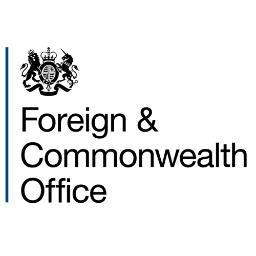12th March 2015
Annual Human Rights Report for 2014
Today the UK launches its Annual Human Rights Report for 2014, the purpose of which is to increase awareness of the UK’s role in promoting human rights worldwide, as well as to influence countries to take more concrete steps to meet their international human rights obligations.
Why does the UK place such a high priority on human rights? The answer is simple. The safeguarding of essential human rights is vital to the development of free, fair and prosperous societies. Any country which wishes to be described in these terms must allow space for those in authority to be open to scrutiny and challenge. There should be room for dissenting viewpoints regarding the political system, economic and societal development, or indeed any aspect of public life.
Inclusivity is critical to this process. It is not healthy for one side or group to dominate the national conversation. This is why the basic human rights of freedom of expression and assembly are so important. Without these, governments are not sufficiently held to account, and countries can rapidly descend into cronyism and corruption. The concept of the rule of law – an understanding that power is not to be exercised in an arbitrary and unconstrained way, that the State is answerable to its citizens and that there must be due process – was enshrined in the sealing of Magna Carta, the 800th anniversary of which is marked this year. This ancient document agreed between a 13th Century English King and the barons who challenged him remains relevant today. For the principles of political competition, rule of law and free speech remain the bedrock upon which prosperous and just societies – not to mention modern high value knowledge-based economies – are built.
A confident country regards plurality of opinion as a positive influence. Good ideas and arguments should always defeat bad ones, and this exchange can only take place in a genuinely free society where voices from all sides are heard. To present the options as a choice between violent conflict and suppression of free speech is a false choice which is unlikely to benefit society. There is a middle way – peaceful debate and expression of differing viewpoints is likely to lead to greater mutual understanding and inclusive solutions.
As the 2014 Human Rights report outlines, this is a debate which is happening all over the world. No country is perfect. We in the UK know that our record on human rights is not unblemished, and we are always striving to improve. This process is assisted immeasurably by a committed and tenacious civil society sector, which aims to ensure our Government is held to account and abides by its international human rights obligations.
Thailand is bound by many of the same international obligations – including the United Nations International Covenant on Civil and Political Rights – which have been designed to safeguard essential human rights, including the principles of freedom of expression and assembly. Under martial law, these principles have not always been upheld. The 2014 Human Rights report has not designated Thailand as a priority “country of concern” – those countries where we have the most serious human rights preoccupations – but the report does examine the imposition of martial law and its consequences for human rights in Thailand.
As a friend of Thailand, we believe Thailand should aim higher than being judged favourably only in comparison to the worst performers on human rights. If Thailand aspires to compete globally and to become a respected and active player in the international community, it must take its human rights obligations seriously and ensure that a wide and diverse range of voices take part in its national conversation. This is not just vital in maintaining a positive image for Thailand internationally, but will also ensure success in the long term as Thailand seeks to build a sophisticated knowledge based economy, and a free and prosperous society.

As a former VSO volunteer in Thailand and a trainer for VSO in Britain I was extremely concerned by the news today of migrant ships from Burma being refused assistance in Thai waters.. I urge you to continue your work with Thai officials so that these desperate people can receive immediate help and longer term support.